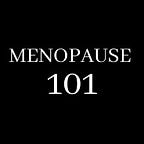Menopausal Weight Gain: A Fresh (Compassionate!) Approach
By Dr. Joy’El Ballard
“I haven’t changed what I’m eating or changed my activity and I’ve suddenly gained weight…especially around my midsection!” “I eat healthy and work out for an hour and the weight is just not coming off!” Does any of this sound familiar? These are common frustrations experienced by individuals entering the menopausal transition or menopause. Some of my menopausal patients feel if they even look at a cupcake, they gain five pounds. The scale becomes their enemy — it doesn’t matter how hard they try, they can’t seem to tip it in their favor. The result is often frustration, self criticism, and negative associations with their bodies. But it doesn’t have to be this way.
OK. So What REALLY causes weight gain in menopause?
Unexpected weight gain often starts in perimenopause, so as early as age 39 to 40. It is a common complaint in menopause — and often attributed to the menopause transition — when in reality, multiple studies show that unwanted weight at this stage of life is often, in fact, due to changes related to aging and lifestyle.
Sure, there is evidence that menopause changes your body’s composition, particularly the distribution of adipose or fatty tissue. And studies of menopausal women show that, during the menopause transition, there is increased fat in the abdominal region, in addition to decreased lean muscle mass overall. In addition, fluctuations in estrogen and a subsequent lack of it can lead to the improper metabolism of fats as well as higher glucose levels. Aging is also associated with decreased metabolism, increased body fat and loss of lean muscle mass. All of these processes can be compounded by a more sedentary lifestyle (hello, all of 2020) which subsequently leads to weight gain.
How do I maintain a healthy weight during menopause?
Personally, I’m OK with you throwing the scale away! This way, you can stop focusing on the number and, instead, become more attuned with how you feel. When we focus on an intentional lifestyle of eating healthy and moving our bodies so we feel great, then we can get to a healthy weight (which is different for every body). This process starts from the inside. Nourishing your gut with a rainbow of foods and exercising your body to release those “feel good” hormones? These are the efforts required to optimize body weight.
So what’s the ideal fitness and exercise for people in the menopause transition? Anything you’ll regularly do! But here are a few things to keep in mind:
- Include weight-bearing exercises as well as strength training to counteract the loss of muscle mass.
- Set a realistic goal you can stick to — moving even just a few minutes per day will help you more than missing a too-ambitious workout schedule.
- There will be times when you don’t feel like exercising and that’s OK. Just start anew the next day! Think of exercise as not only a way to lose weight but more importantly a way to improve your heart, brain and mental health.
But what about your diet during menopause? I get asked this question all the time. Here’s what I think:
- Know that no particular “diet” works for every woman. In fact, I encourage you not to think of “dieting” at all but instead choosing a lifestyle that uniquely works for you.
- Your best “diet” plan in menopause is to set realistic goals in making healthy choices around food. If you set a bodacious goal like “I wanna lose 40 pounds in a month,” this is a big set up for failure.
- “Lose-weight fast!” diets or “drastic detox” are not only not required, they’re not healthy for losing weight or maintaining a healthy weight.
- The most effective (and compassionate) weight-loss strategy is to go slow, be thoughtful, and be gentle with yourself along the way.
And, last: Don’t forget to get enough sleep. Sleep deprivation can be another contributing factor to weight gain in menopause. Sleep disturbances are common and can lead to deprivation which is associated with changes in hormones that regulate our hunger and our satiety. If you are not getting enough sleep, your appetite increases and you desire more food to feel full. Restorative sleep is getting 7–8 hours of sleep per night.
Some quick tips for better sleep during menopause:
- If there are symptoms like night sweats affecting your sleep, talk to your healthcare provider about managing them so sleep can improve.
- Create a cool, dark environment away from electronics.
- Try relaxation techniques like meditation to wind down into a restful sleep.
- A diffuser with essential oils like lavender in your room may help get you in the mood for restful sleep.
Most importantly: Remember to give yourself grace. Small, consistent, and sustainable changes matter the most in this journey. Don’t beat yourself up if you get off track. You’re human…this is a marathon, not a sprint!
The information provided on StateOfMenopause.com is not intended and should not be construed as medical advice, treatment, or diagnosis. Always seek the guidance of a qualified healthcare provider with any questions or concerns regarding your health.
